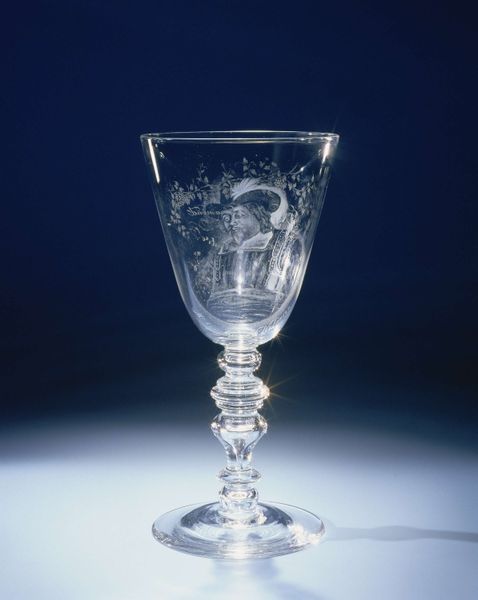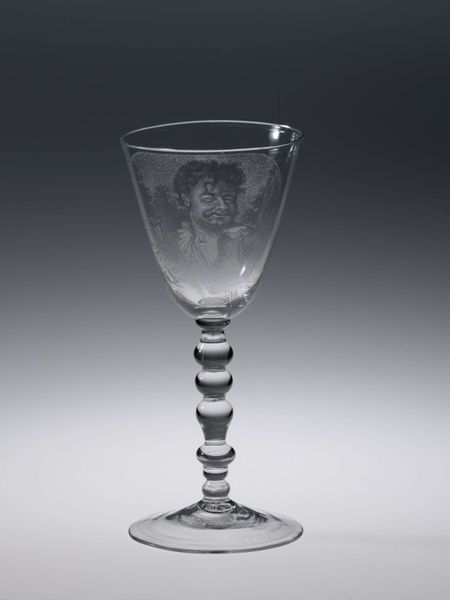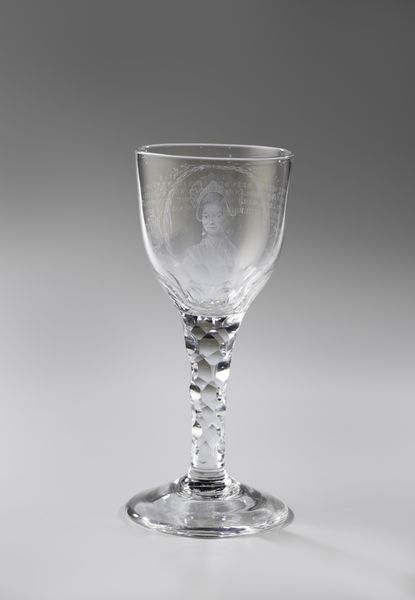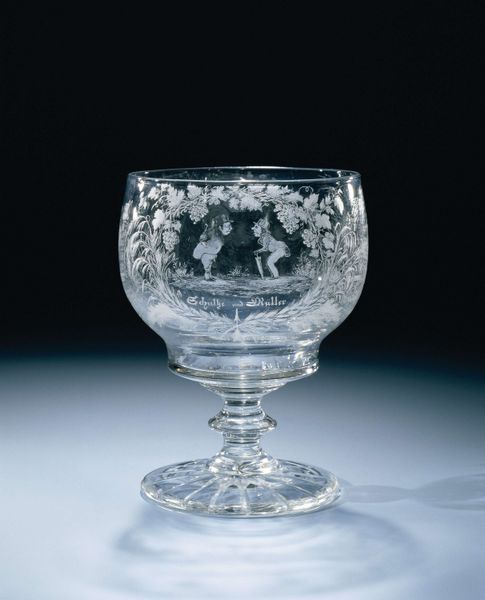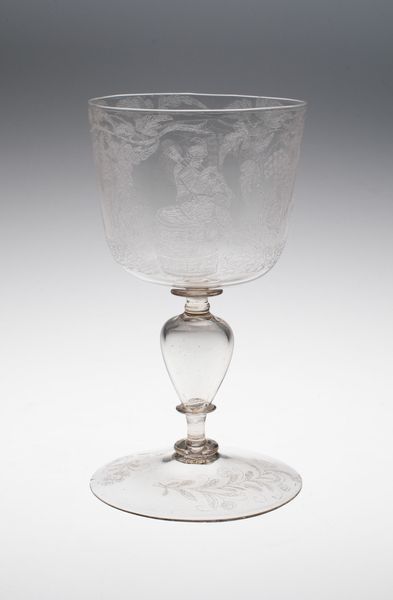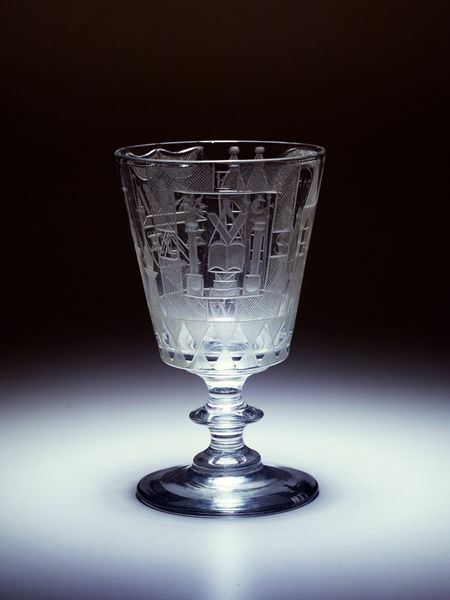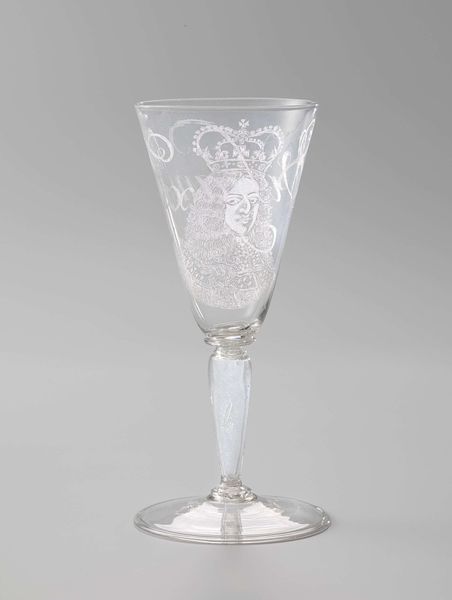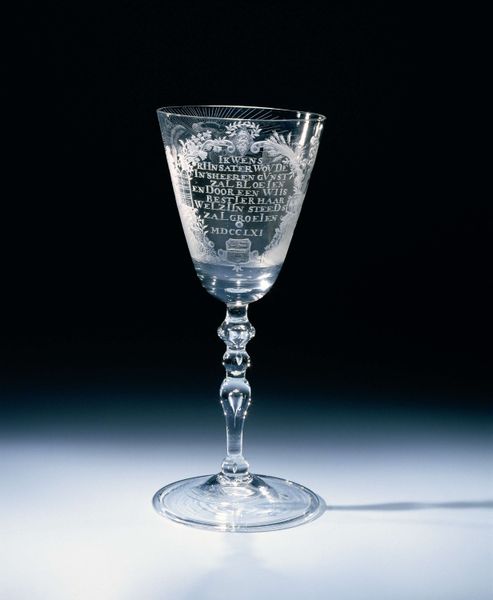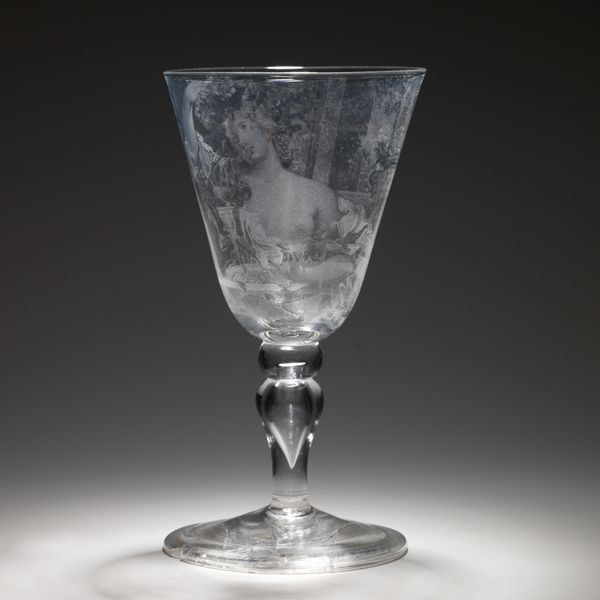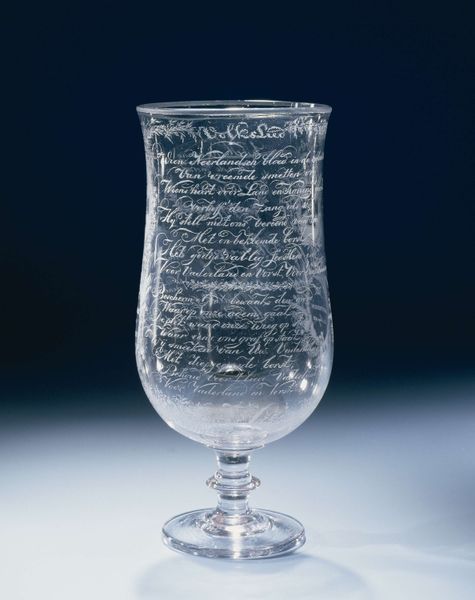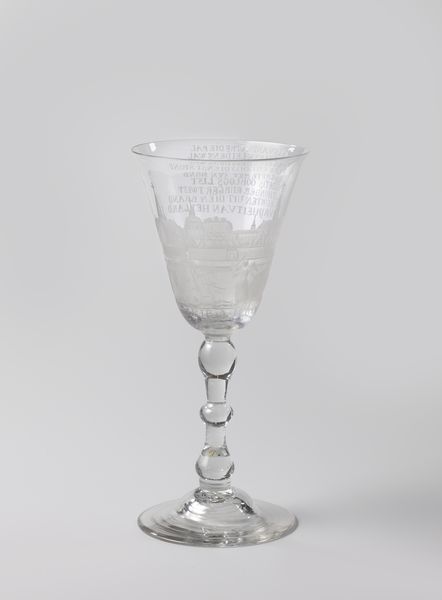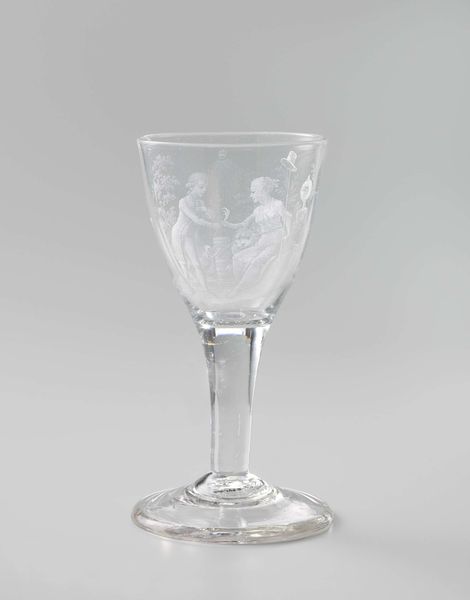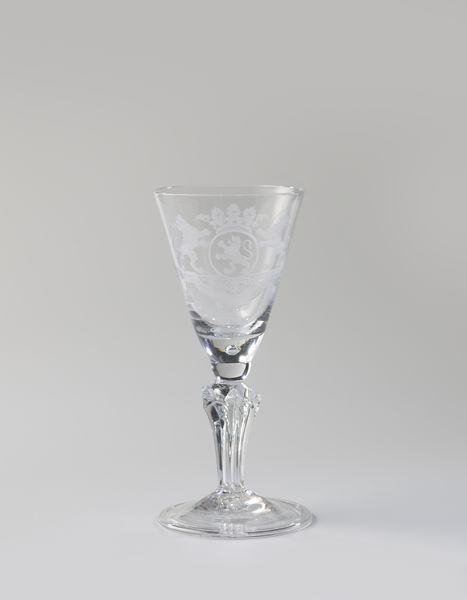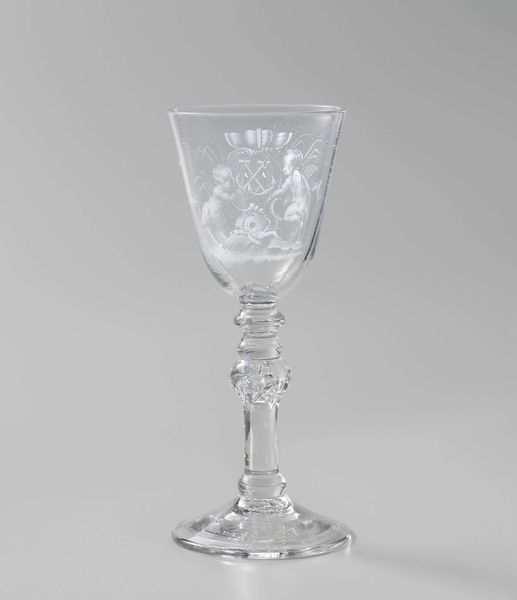
glass, engraving
#
glass
#
romanticism
#
ceramic
#
engraving
Dimensions: height 15.7 cm, diameter 8 cm
Copyright: Rijks Museum: Open Domain
Curator: Looking at this exquisite piece, one is immediately struck by its delicacy and sentimental air. This is a Kelkglas, a goblet, made before 1798. What draws me in, however, is the fragility—the transparent delicacy—and its clear evocation of idealized friendship. Editor: Yes, it feels rather utopian. Seeing it now, this glass conjures the intense desire for human connection and belonging that perhaps fueled so much of the Enlightenment ideals. I wonder about who was drinking from such glasses... Did they reflect on the realities of friendship? On its exclusions? Were they predominantly male and white? Curator: The goblet is attributed to an anonymous engraver and the inscription ‘Vriendschap’ translates as ‘Friendship.’ So, let’s think about that term at that time: Friendship held serious political weight, informing nascent ideas about collaboration across differences. Editor: I agree, but I can’t help but be critical of what might feel to modern eyes a saccharine image. Those idealized images of childhood relationships can easily erase difference, glossing over imbalances of power. Does this piece perhaps mask unequal access to resources by showing these privileged children shaking hands? Who gets represented? And who doesn't? Curator: Absolutely, understanding the power dynamics and absences are just as important as examining intended messages of fraternity. That tension is critical when considering how political ideologies circulate. Think about gift exchange or ritualistic communal toasting as an expression of unity: This was very popular in the revolutionary period. Editor: So, looking at this lovely object allows us to think critically about friendship not just as personal connection but also a crucial component of political ideologies and collective identity. Curator: Indeed! This glass really invites one to consider how objects shape our understanding of broad concepts, like nationhood, solidarity, belonging, but also, indeed, difference. Editor: Precisely. And by questioning those idealized portrayals we start to question the conditions under which they became so persuasive in the first place.
Comments
No comments
Be the first to comment and join the conversation on the ultimate creative platform.
